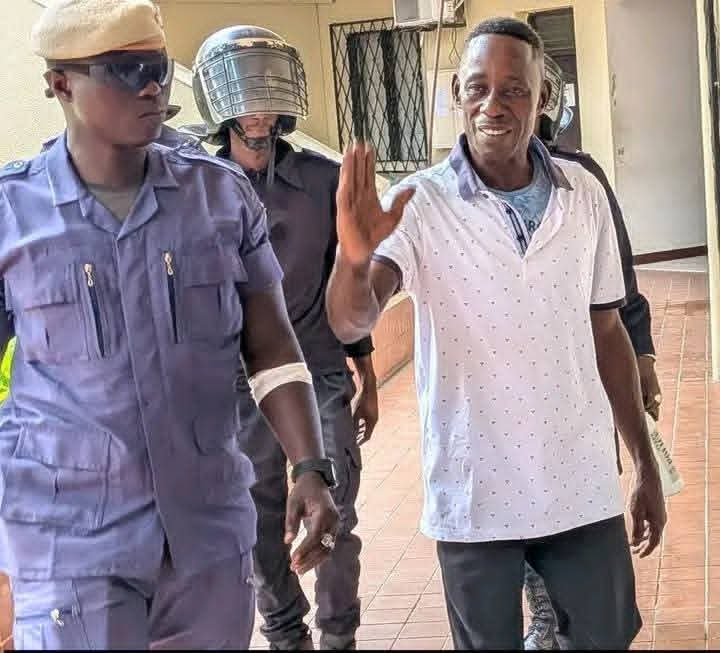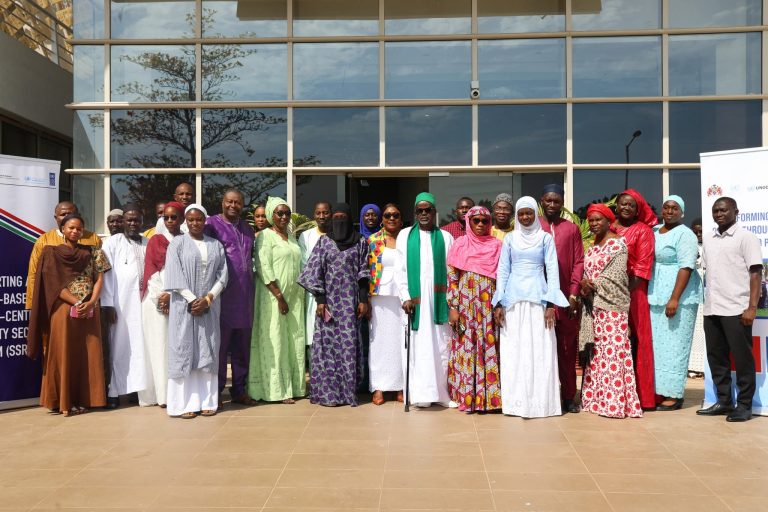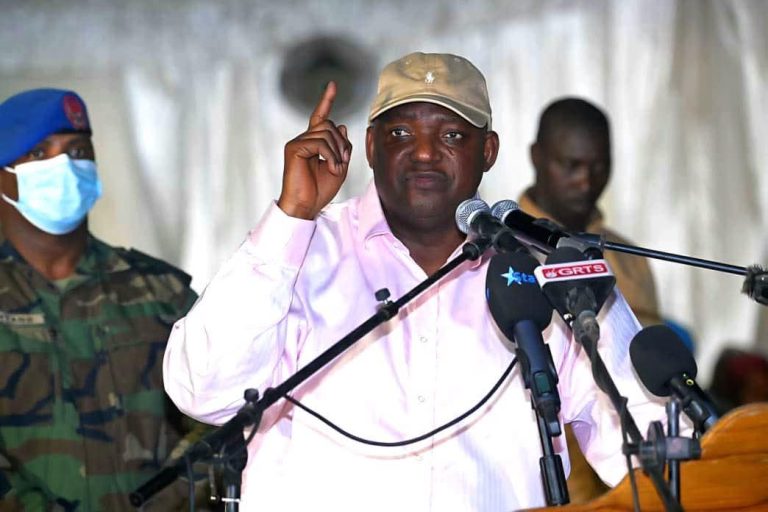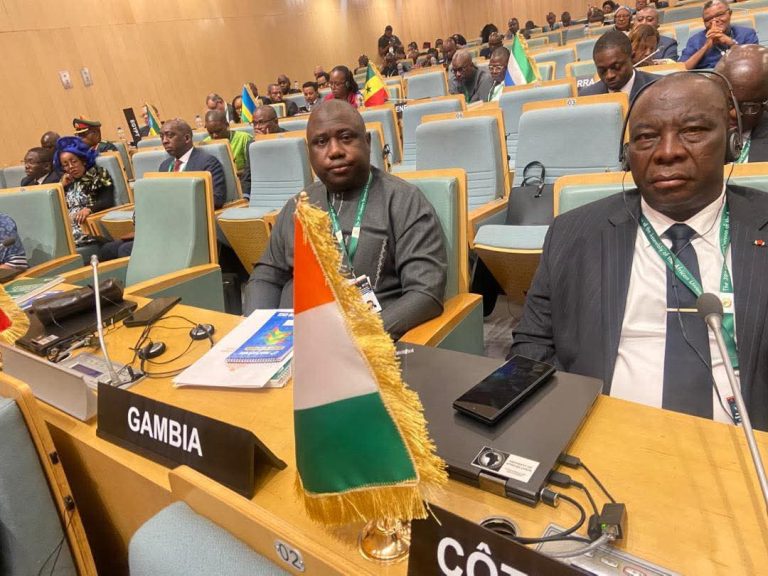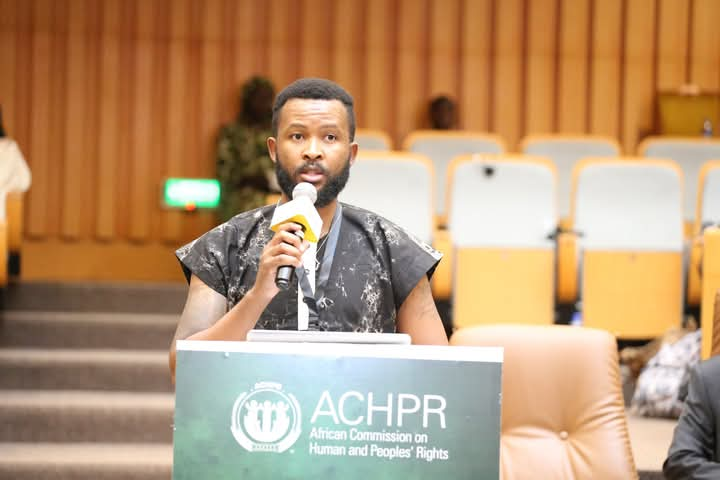
By Modou Touray
The ongoing 83rd Ordinary Session of the African Commission on Human and Peoples’ Rights, Melusi Simelanetoldethe Commission that “Mere words of concern will not change the pictures of violence, abuse and conflict that dominate so many lives on our continent.”
I told the Commission on behalf of the Southern Africa Litigation Centre.
Introduction
1. Honourable Chairperson of the Commission, Honourable Commissioners, State Delegates, Participants, and esteemed guests, we appreciate the opportunity to speak at this 83rd session of the African Commission on Human and People’s Rights regarding the increasing decline of human rights, which is preceded by attacks on democratic values and principles in Africa.
2. This session occurs as the African continent finds itself at a crossroads, confronting historic challenges and emerging threats to human rights and dignity. This is a decisive moment in Africa’s journey, where progress and peril walk side by side. Although strides have been made in entrenching constitutionalism, civic participation, and legal protections, ongoing and, in some instances, worsening conditions require immediate attention.
3. The Southern Africa Litigation Centre (SALC) is seriously concerned about Africa’s decline in human rights. However, concern alone is not enough to bring about change. Concern alone will not stop the violence in Sudan; it will not silence the guns in the DRC, and it will not set journalists free in Zimbabwe. As members of civil society, we know concern, outrage, or despair must translate into action. Against that backdrop, I urge the honourable Commission to actively engage with the matters and the respective stakeholders. I highlight the following.
Press Freedom in Southern Africa
4. We are greatly alarmed by the ongoing assault on press freedom in various parts of the Southern African region, especially Zimbabwe. Journalists continue to be at risk of arbitrary detention, surveillance, and violence. Legislation is increasingly weaponised to silence independent voices, undermining the media’s role as a cornerstone of democratic accountability.
5. Commissioners, we are facing a new threat to this end. Political activists, human rights defenders, and climate activists are being disproportionately targeted by powerful players, often assisted by governments that stand to benefit in instances where, for example, there is talk of investment. Africa’s industrialisation must not come at the expense of freedoms and liberties. Those speaking out against the evictions of Indigenous people by large-scale developments, and the unfair and unregulated access to clean water resources by industry, should be protected. Equally, information about large-scale developments like the Lesotho Highlands Water Project should be readily available to affected communities.
6. We urge this Commission to reaffirm the essential role of a free press and to encourage Member States to align their domestic laws with the Declaration of Principles on Freedom of Expression and Access to Information in Africa.
Protection of Marginalised Communities
7. Marginalised communities, including persons with disabilities, LGBTQI+ individuals, informal traders, and those living in poverty, continue to experience systemic discrimination and violence. In many instances, their access to justice is hindered, not solely by the law but also by stigma, institutional bias, and economic exclusion.
8. Member States must adopt and implement social protection policies grounded in human rights while abolishing punitive laws that criminalise identity, poverty, and status.
Conflict in Eastern DRC
9. The situation in eastern DRC remains a catastrophe for human rights. Armed groups continue to harm civilians, with widespread reports of sexual and gender-based violence, forced displacement, and unlawful killings. The region is experiencing a humanitarian disaster, and impunity perpetuates the cycle of violence.
10. We urge the Commission to strengthen calls for international, regional and domestic accountability mechanisms to fight impunity and advocate for the protection of civilians and the cessation of hostilities.
Protection of Civilians in Sudan
11. In Sudan, the conflict between rival military factions persists, causing profound and irreversible damage to the civilian population. Thousands have been killed, and millions have been displaced. Schools, hospitals, and places of worship have not been spared.
12. The Commission must call for immediate and unrestricted humanitarian access and denounce all breaches of international humanitarian law and human rights law by both state and non-state actors. At the same time, there can be no peace without justice. Crimes committed must be investigated, and perpetrators must be held accountable.
Prisons’ Oversight
13. Across the region, detention conditions remain dire. Overcrowding, insufficient healthcare, torture, and inhumane treatment are prevalent and often disproportionately affect pretrial detainees and marginalised groups.
14. SALC continues to advocate for independent oversight mechanisms, national preventative frameworks, and transparent prison reforms in line with the Robben Island Guidelines. Respecting the dignity of incarcerated individuals must be central to any justice system.
The Climate Emergency
15. Lastly, the climate emergency is no longer a distant theoretical threat but a lived reality for millions across Africa. Communities face displacement, hunger, and loss of livelihoods due to extreme weather events and environmental degradation. In Southern Africa, recurring droughts and cyclones reveal the vulnerability of infrastructure and governance systems.
16. We urge the Commission to integrate climate justice more prominently into its work, particularly in safeguarding the rights of climate-vulnerable populations and ensuring that states are held accountable for their obligations under the African Charter and the Paris Agreement.
Chairperson, Honourable Commissioners,
17. Human rights are under siege. This is not a moment for muted or symbolic gestures. This Commission cannot only stand for concepts of freedom and justice – it must act to deliver them. Mere words of concern will not change the pictures of violence, abuse and conflict that dominate so many lives on our continent.
18. The Southern Africa Litigation Centre expresses solidarity with those defending human rights across the continent. We reaffirm our commitment to advocacy and partnerships to safeguard and promote the rights guaranteed by the African Charter on Human and Peoples’ Rights.
19. Together, we must enforce fundamental rights and freedoms and make it our shared reality.
Thank you.

